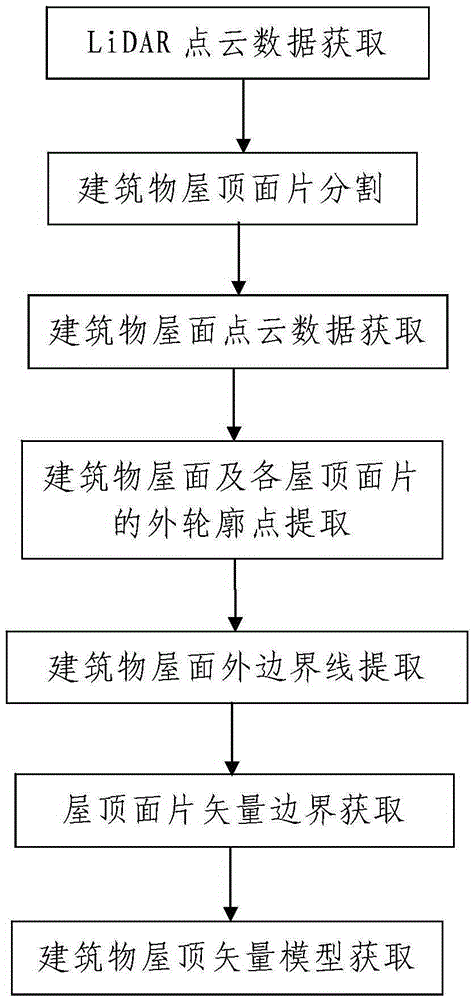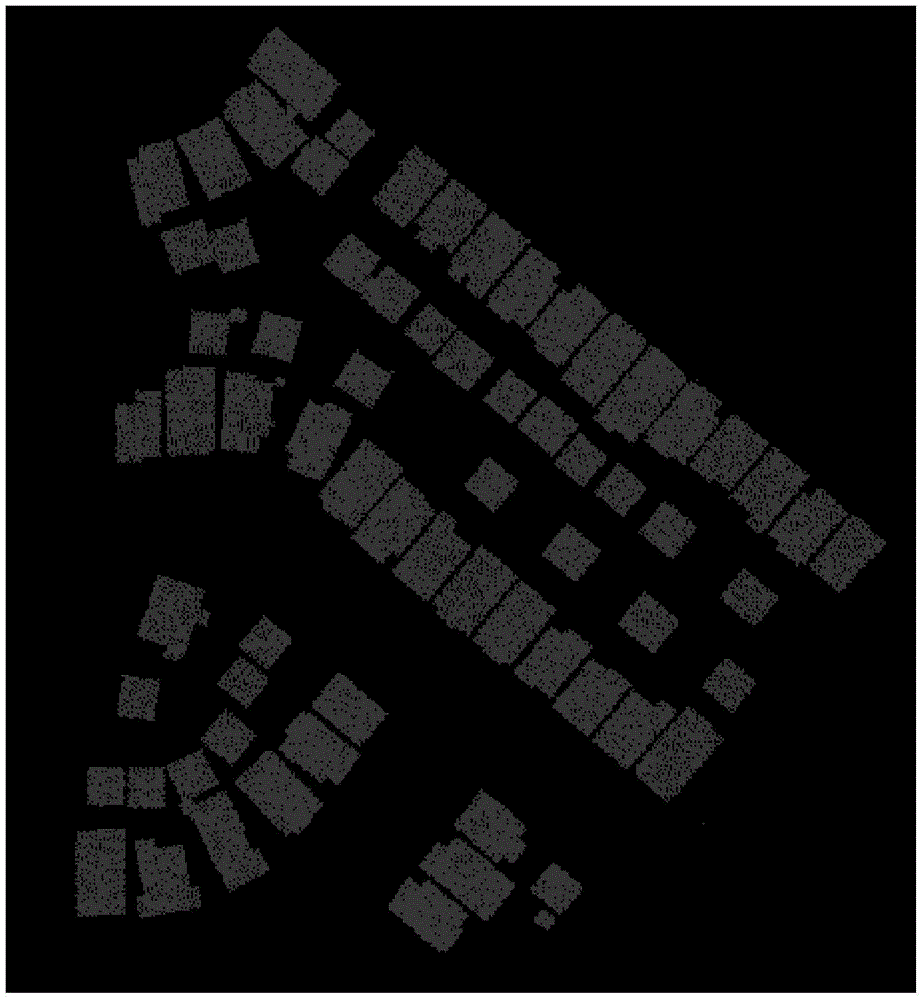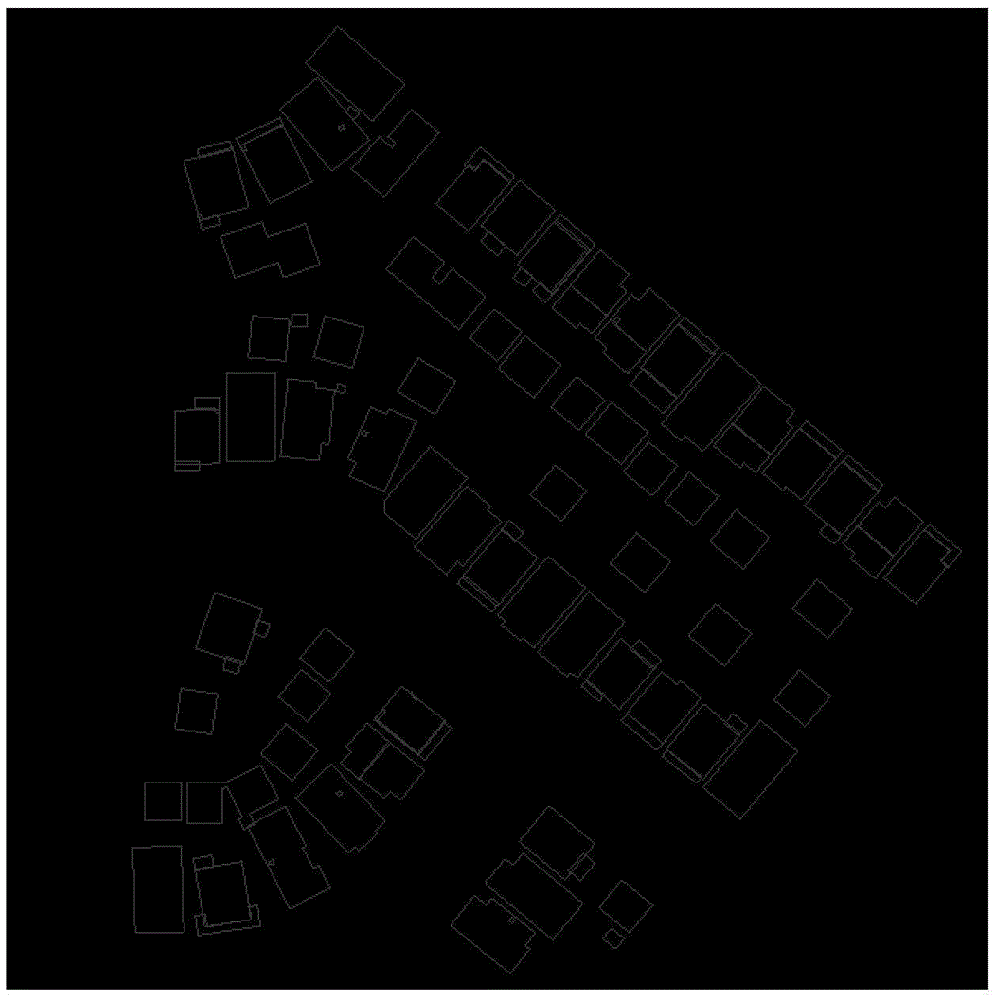A building roof reconstruction method based on airborne lidar data
A building and data technology, applied in 3D modeling, image data processing, instruments, etc., can solve problems such as difficult model unit selection, merging errors, and difficulty in estimating building styles.
- Summary
- Abstract
- Description
- Claims
- Application Information
AI Technical Summary
Problems solved by technology
Method used
Image
Examples
Embodiment Construction
[0112] Such as figure 1 A method of building roof reconstruction based on airborne LiDAR data is shown, including the following steps:
[0113] Step 1, LiDAR point cloud data acquisition: use the airborne LiDAR measurement system to obtain the point cloud data of the area to be measured, and transmit the acquired point cloud data to the data processing device; the point cloud data includes multiple points in the area to be measured The point cloud data of each building roof, the point cloud data of each building roof includes multiple measuring points on the building roof and the three-dimensional coordinates of each measuring point.
[0114] In this embodiment, before processing the LiDAR point cloud data, the acquired point cloud data is filtered by setting an elevation threshold, and the point cloud data of other features other than buildings need to be processed in the point cloud data. At the same time, it is necessary to classify the filtered point cloud data to find ou...
PUM
 Login to View More
Login to View More Abstract
Description
Claims
Application Information
 Login to View More
Login to View More - R&D
- Intellectual Property
- Life Sciences
- Materials
- Tech Scout
- Unparalleled Data Quality
- Higher Quality Content
- 60% Fewer Hallucinations
Browse by: Latest US Patents, China's latest patents, Technical Efficacy Thesaurus, Application Domain, Technology Topic, Popular Technical Reports.
© 2025 PatSnap. All rights reserved.Legal|Privacy policy|Modern Slavery Act Transparency Statement|Sitemap|About US| Contact US: help@patsnap.com



